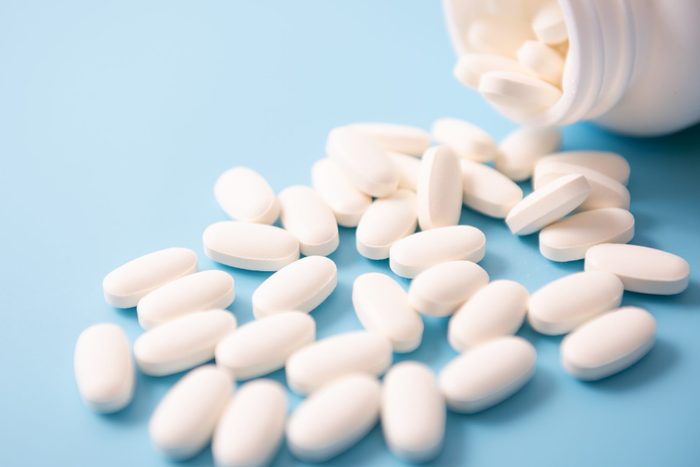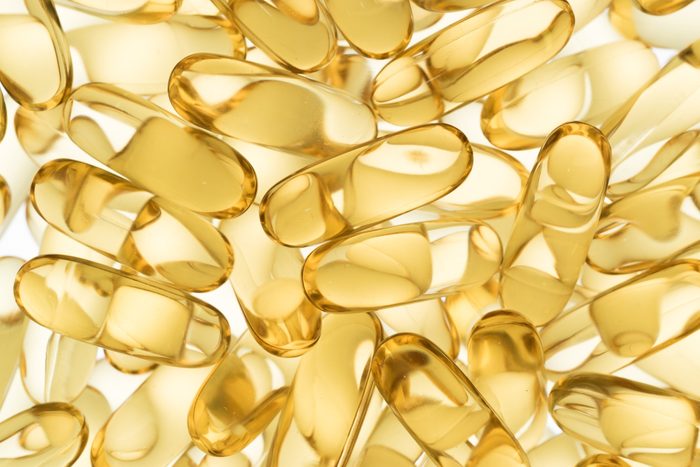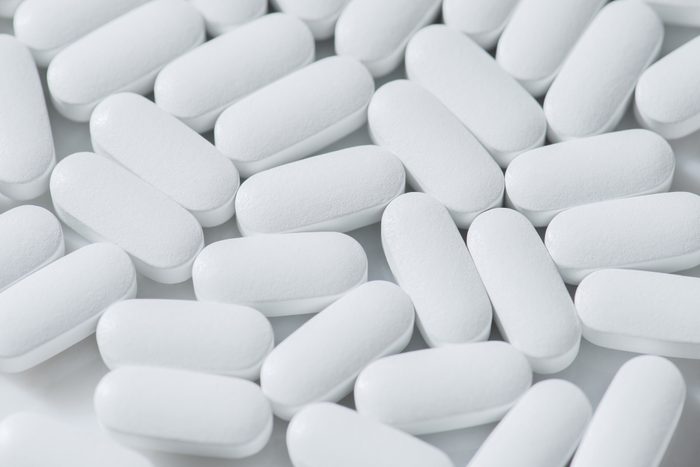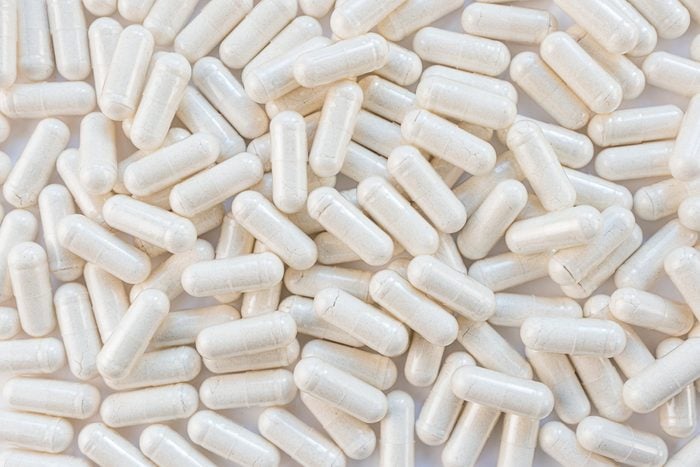
Were you ever told to drink your milk as a kid because it gives you strong bones? While there is a lot of questionable nutrition advice out there these days, this piece of wisdom has stood the test of time. Milk is a source of a few important vitamins and minerals that are beneficial for your bone health, and having strong bones as you age—from a little child to a wise elder—is key for avoiding bone fractures, breaks, and conditions like osteoporosis. Cow’s milk has been the traditional recommendation bone strength, but it may also be worth considering the addition of a few supplements for bone health to your day.
It all starts with bone density. The higher your density levels are, the stronger your bones will be. Unfortunately, your body will lose bone density as you age. Women can lose 20% of their bone density within just five to seven years of having been through menopause.
According to Dalton, GA-based dietitian Trista Best, MPH, RD, LD, from Balance One Supplements, “Some common causes of bone density loss include age, lifestyle, and overall health.” Fortunately, Best says it is possible to increase bone density levels through your diet, supplementation, and lifestyle habits.
While these three factors play roles in bone density, Best also points out that your healthcare provider may find integrating a prescription medicine (or even surgery) may be wise, depending on how much bone density was lost. “Medications, including bisphosphonates and denosumab, are commonly prescribed to increase bone density and reduce the risk of fractures in people with osteoporosis or other conditions affecting bone health,” Best says.
Unlike prescription medications, supplements are easier to obtain over the counter and could be a beneficial way to increase your bone density (depending on a licensed healthcare provider’s recommendations for you). If you’re looking to fortify your bone health, these are the best supplements for bone health Best recommends you can ask about.

Vitamin D
If you had to choose the best vitamin for joints and bones, Best would say getting enough vitamin D is key for keeping them strong. Vitamin D is needed for calcium absorption and bone mineralization, which in turn benefits bone density.
Still, vitamin D deficiency can easily happen if you’re not getting enough sunlight or eating those vitamin D-rich foods. This is where a supplement comes into play. “If you have a confirmed vitamin D deficiency it may be beneficial to integrate a vitamin D supplement into your regimen,” Best says. “Those at risk for a vitamin D deficiency, due to a lack of sun exposure or plant-based diet, may benefit from a vitamin D supplement to aid in bone health.”
On the other hand, Best points out that there is such as thing as vitamin D toxicity if you’re taking in too much of it. “Because vitamin D is a fat-soluble vitamin, it can become toxic—which means you should always clear this supplement with your healthcare provider before adding it to your vitamin routine,” she says.

Calcium
Vitamin D and calcium go hand-in-hand. That’s why for some, a calcium supplement may be needed in order to increase bone density numbers.
“A diet rich in calcium and vitamin D, along with potential supplementation of these nutrients, can help to prevent bone loss and potentially restore lost bone density,” says Best.
Calcium is a mineral responsible for building and maintaining healthy bones and teeth. Calcium is also helpful for blood clotting, as well as the proper functioning of your muscles, heart, and liver.
Calcium is stored in the bones, which is where one’s bone density numbers come from. Yet, because the body needs calcium for other functions, it will release those calcium stores into the blood and tissues when it’s needed. This is why having a steady amount of calcium in the diet—as well as supplementation, if recommended by a doctor—is majorly vital for the proper functioning of your body’s organs (and the strength of your bones).
The Recommended Dietary Allowance (RDA) for calcium for women and men ages 19 to 50 is 1,000 milligrams a day, and increases to 1,200 milligrams a day after 51. Because your bone density decreases at a faster rate as you age, your need for calcium increases.
Best says to first and foremost get calcium from dietary sources like dairy products, dark leafy green vegetables, fish with edible soft bones, and calcium-fortified foods. Because there are risks of having too much calcium in the blood (known as hypercalcemia), be sure to talk to a medical professional before adding a calcium supplement to your regimen.

Phosphorous
While calcium and vitamin D may seem like obvious supplements for bone health, Best suggests that a phosphorus supplement also can be beneficial for keeping your bones strong.
“Phosphorus is equally as important, but gets little attention for its impact on bone strength,” she explains. “This mineral is essential for bone health, in that it is essential in regulating calcium metabolism. Calcium metabolism refers to the processes by which the body absorbs, transports, and utilizes calcium, a mineral that is essential for various physiological functions, including bone health.”
While Best does say that phosphorous supplements in appropriate doses are considered safe to take (as long as you seek guidance from a healthcare professional), she does highlight a few sources of phosphorus you can simply get from your diet—like dairy products, meats, poultry, fish, and nuts. The RDA for phosphorous is 700 milligrams a day for both men and women above the age of 19. To put that into perspective, a 3 oz. serving of salmon contains 214 milligrams of phosphorous and one cup of cow’s milk contains 224 milligrams.
For more wellness updates, subscribe to The Healthy @Reader’s Digest newsletter and follow The Healthy on Facebook, Instagram, and Twitter. Keep reading:
